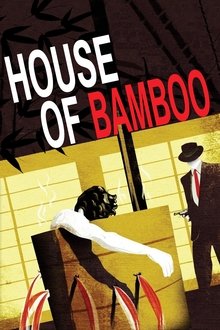Keisuke Kuroda wakes up in a hospital bed unable to remember who he is. While sneaking out of the hospital, he sees a glimpse of the news and realizes that he is the Prime Minister of Japan. His approval rating was the lowest in the history of modern Japan. During a recent speech, a citizen had thrown a rock at him causing him to lose his memory. Keisuke Kuroda’s subordinate takes him to the official residence of the prime minister where he tries to implement changes to the country. The only people aware that he has lost his memory are his three secretaries.
Related Movies

The Torture Club (2014)
The "Torture Club" is an official after-school activity at the private school Saint Honesty Gakuen. Yuzuki has no idea about the club when she enrolls, and gets abducted by the club members and hauled off the club-room. There, she finds out that upper-class student Aoi, her secret idol, is in the club, and decides to join, but…
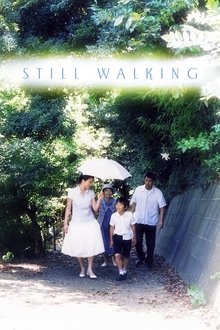
Still Walking (2008)
A family gathers together for a commemorative ritual whose nature only gradually becomes clear.

Air Doll (2009)
A life-size, inflatable sex doll suddenly comes to life one day. Without her owner knowing, she goes for a walk around town and falls in love with Junichi. She starts to date Junichi and gets a job at the same store where he works. Everything seems to be going perfectly for her until something unexpected happens.

Moon Child (2003)
Moon Child follows a group of childhood friends as they advance in a futuristic criminal underworld. Sho feels he is doomed to walk in his idol Kei's footsteps as a vampire with the gift of eternal life and the curse of blood thirst. Over time, their tight friendship becomes corrupted because of their rivalry and love for the same woman.
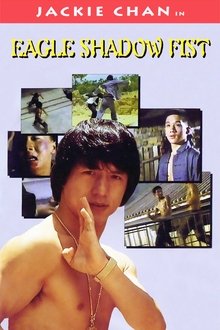
Not Scared to Die (1973)
Historical movie set during the Japanese occupation of China during WWII. Jackie Chan is one of the good guys but has nothing much more than a supporting role.

The Night I Swam (2018)
Snow covered mountains in Japan. Every night, a fisherman makes his way to the market in town. His 6 year old son is awoken by his departure and finds it impossible to fall back to sleep. In the sleeping household, the young boy draws a picture he then slips into his satchel. On his way to school, still drowsy, he strays off the path and wanders into the snow...

Sakuran (2006)
Anna Tsuchiya blasts back in time playing an oiran, a top-notched geisha of the Edo period’s Yoshiwara District, navigating brothel politics while trying to cling to the man she loves.

Hana (2006)
In a poor district of Edo lives a young samurai named Soza. He has been sent by his clan to avenge the death of his father. He isn't an accomplished swordsman however, and he prefers sharing the life of the residents, teaching the kids how to write etc. When he finally finds the man he is looking for, he will have to decide whether he follows the way of the samurai or chooses peace and reconciliation.

Love and Honor (2006)
A look at the relationship between a young blind samurai and his wife, who will make a sacrifice in order to defend her husband's honor.

Exte: Hair Extensions (2007)
An aspiring hair dresser becomes the infatuation of a tricophilic man who sells hair extensions to nearby hair salons. The source of the hair is the corpse of a girl whose dead body continues to grow beautiful, voluminous, black hair that comes alive, driving those who use the extensions insane or killing them.

I Just Didn't Do It (2007)
A young man is falsely accused of molesting a high-school girl on a train. He is arrested and charged, and goes through endless court sessions, all the while insisting that he is innocent.

Kansas City (1996)
A pair of kidnappings expose the complex power dynamics within the corrupt and unpredictable workings of 1930s Kansas City.

Little Forest: Summer/Autumn (2014)
Fleeing heartbreak in the big city, Ichiko returns to Komori, her rural hometown. She battles summer's rain and humidity, bakes her own bread, grows hothouse tomatoes and tills the fields. During autumn, the time for pickling and preserving fish and sweet potatoes, Ichiko begins reaping rice and recalls her departure five years before.

Swimming in a Sand Pool (2024)
It's summer vacation, but two high schoolers have been instructed to clean the (empty) swimming pool. As they sweep the pool, they initially discuss school life, love and makeup. But it isn't long before their worries begin to overflow and their thoughts intersect.
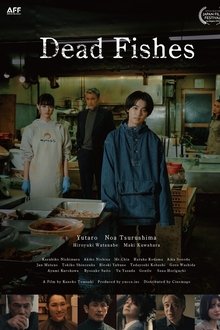
Dead Fishes (2022)
Shun Miyata's new life in Tokyo takes a dark turn when he and coworker Yuka discover their boss Yuriko is involved in insurance fraud and murder. As they grapple with the betrayal, their bond deepens, contrasting youthful hope against a backdrop of adult corruption.
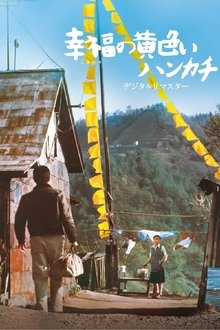
The Yellow Handkerchief (1977)
The story is about a convict released from prison for an old murder who is thinking about returning to his ex-wife and his former life. If she puts a yellow handkerchief on the window, it would mean that she wants him back at home.

A Janitor (2021)
Fukami is a high school janitor whose father was a gangster. He works at the school as a janitor instead of belonging to the gang so he can watch out for Yui, the daughter of his deceased father's brother Majima Yoshiki. One day, a gang feud erupts and Yoshiki is killed. Yui becomes the next target.

Ox-Head Village (2022)
Having launched a social media prank about a haunted building, three girls suddenly vanish. Rumours circulate that they were victims of The Ox-Head Village curse, triggering an investigation by two of their friends, desperate to find the truth about what has happened…
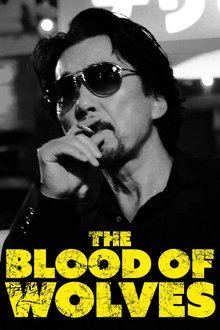
The Blood of Wolves (2018)
Set in 1988 in Hiroshima, Japan, prior to the enactment of the anti-organized crime law. A rumor exists that Detective Shogo Ogami has ties with the yakuza. He is partnered with Detective Shuichi Hioka and they investigate a missing person case involving a financial company employee. Conflicts between opposing yakuza groups become more serious.
